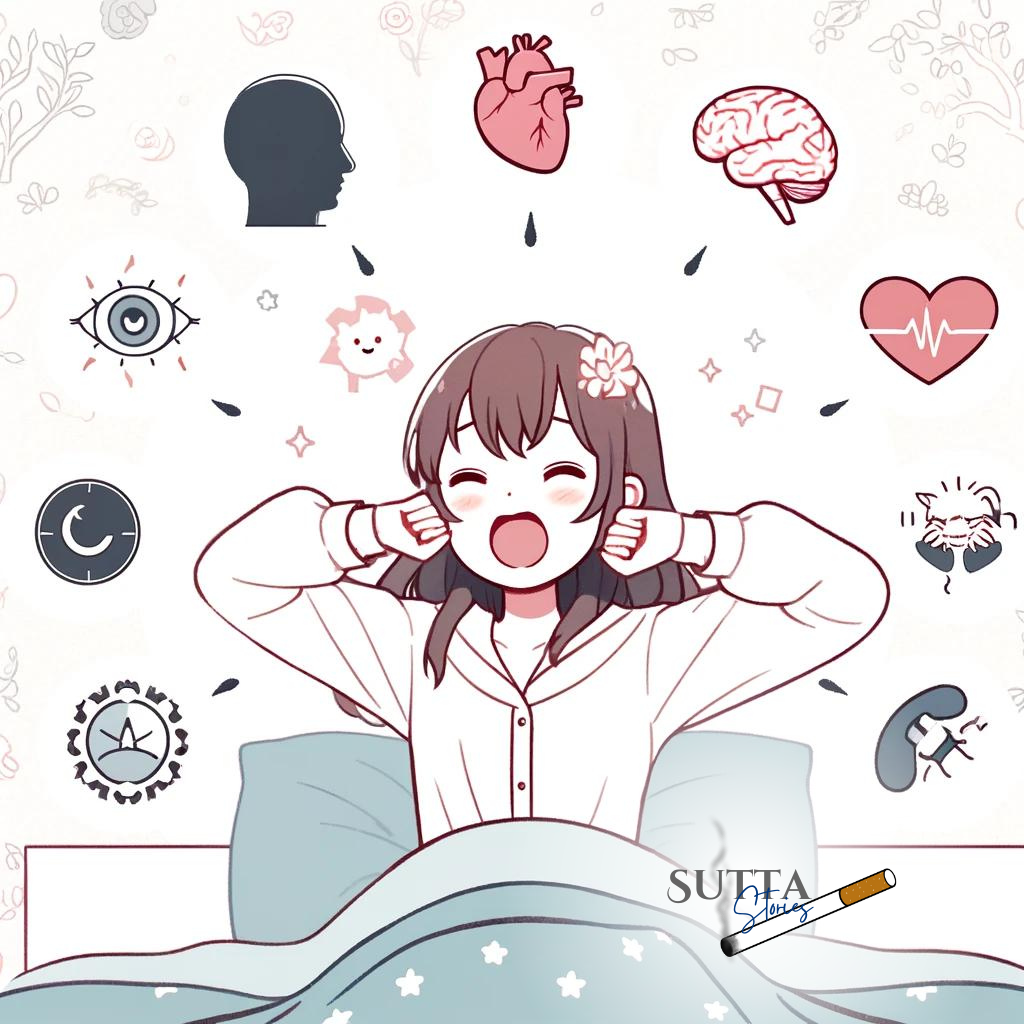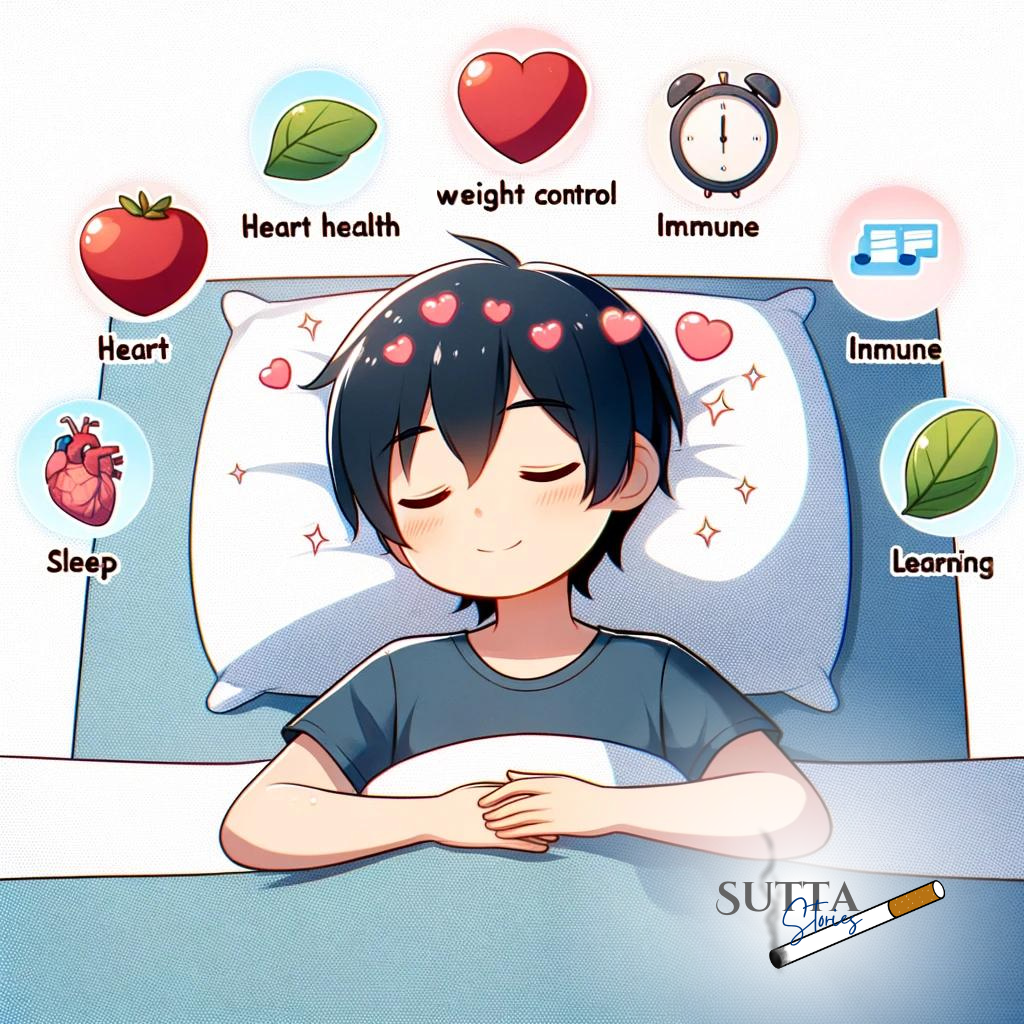In the fast-paced culture of today, having enough sleep has become something that many individuals cannot afford. Almost 50% of adults in Western countries struggle with poor sleep. Just like sausage sizzles or cricket, obtaining an adequate amount of sleep has turned into a national obsession. It takes a lot more than closing our eyes and going to sleep to make the most of the healing power of our sleep cycles. We need to understand the complex science behind them.
We are going to discover all you need to improve your sleep quality from this blog. I'll briefly go through the science of sleep and how it processes, why a lot of individuals are unaware that they're not getting enough sleep, and provide helpful guidance on how to improve sleep quality and boost energy.
Why Sleep Matters More Than You Think
Sleep is a lot more than simply resting down and having a nap. It's a complex but crucial process that affects a variety of our daily activities and well-being. A proper sleep routine is essential for heart health, blood pressure, diabetes, depression, and various other conditions.
Obtaining enough sleep is very important for you to stay healthy and happy throughout your life. Your thoughts and feelings during the day are partially influenced by your sleep patterns. Your body is sustaining physical well-being and promoting appropriate cognitive function while you sleep.
Sleep supports development and growth in kids and teenagers as well. Long-term (chronic) health issues can become more likely to occur if you get insufficient sleep. Your ability to think, behave, work, learn, and get along with people can all be impacted.
Here are some more reasons why it matters more:
Enhances growths
Supports heart health
Aids in weight control
Strengthens the immune system, fights infection lowers risk of injury
Lengthens attention span, and improves memory and learning
The Mechanisms of Sleep: Understanding how it works
There are multiple stages of sleep, such as non-REM and REM (rapid eye movement), and each has a unique impact on well-being and recovery. The majority of modern sleep scientists divide the sleep-wake cycle into four phases. The fourth is classified as rapid eye movement (REM) sleep, whereas the first three are called non-rapid eye movement (NREM) sleep.
Our bodies heal and memory consolidation takes place in the first three stages.
The most active phase of your sleep cycle is called REM sleep. This phase often begins ninety minutes after you go to sleep and is characterized by heavy breathing, pronounced side-to-side eye movements, and a sharp rise in your blood pressure and heart rate. The majority of dreams happen while you're in REM sleep.
Practical Steps to Better Sleep
The things that keep you from getting enough sleep may be beyond your control. On the other hand, you can develop routines that promote deeper sleep. Take a look at these easy pointers first.
Stick to a sleep schedule
Try to get eight hours or less of sleep each day. Sleeping for seven hours a night is recommended for healthy adults. Most people just need to spend eight hours in bed to receive a decent night's rest.
Decide on a regular time for bed and wake up each day, including the weekends. Your body's circadian rhythm benefits from constancy.
Go out of your bedroom and do something calming if, after going to bed, you still haven't fallen asleep after about twenty minutes. Play some relaxing music or pick up a book. Go back to bed when you're utterly exhausted. Don't change your wake-up or bedtime; just repeat as needed.
Keep an eye on what you eat and drink.
Avoid overeating or going to bed hungry. Avoid eating large or heavy meals, especially, just a few hours before going to bed. You might stay up due to discomfort. Caution is also warranted with alcohol, coffee, and nicotine. Nicotine and caffeine have stimulating effects that take hours to wear off and might cause sleep disturbances. Even though alcohol may initially make you feel sleepy, it may also cause problems falling asleep later in the evening.
Establish a calming atmosphere
Keep your space quiet, dark, and cold. It could be harder to fall asleep if you are exposed to light in the evenings. Before going to bed, try not to spend too much time using light-emitting screens. To create a space that works for you, think about utilizing a fan, earplugs, room-darkening drapes, or other electronics. Better sleep may be facilitated by relaxing activities like taking a bath or practicing relaxation techniques before bed.
Limit daytime naps
Prolonged daytime naps can disrupt your sleep at night. Avoid taking naps in the late hours of the day and limit naps to no more than an hour. To help make up for lost sleep, you might need to take a nap early in the morning before work if you work evenings.
Incorporate exercise into your daily schedule
Regular exercise has been shown to enhance sleep. However, try not to work out right before bed. Time spent outside each day may also be advantageous.
Control your anxieties
Try to solve your problems or difficulties before you turn in for the night. After jotting down your ideas, file them for later. Controlling your tension could be useful. Start with the basics: prioritize your tasks, set boundaries for yourself, and delegate responsibility to others. Meditation is another technique to lessen anxiety.
Conclusion
The foundation of good sleep hygiene is healthy sleeping habits. Your behavior throughout the day and just before going to bed may influence how well you sleep.
If you have trouble falling asleep, you can try some techniques to help you fall asleep faster and stay asleep longer. The majority of these focus on enhancing the way you sleep.
Maintaining a schedule, exercising frequently, practicing relaxation techniques before bed, keeping your bedroom cold and dark, and paying attention to what you eat and drink can all improve the quality of your sleep.
If you continue to have insomnia or erratic sleeping habits, be sure to see your doctor.
















No comments:
Post a Comment